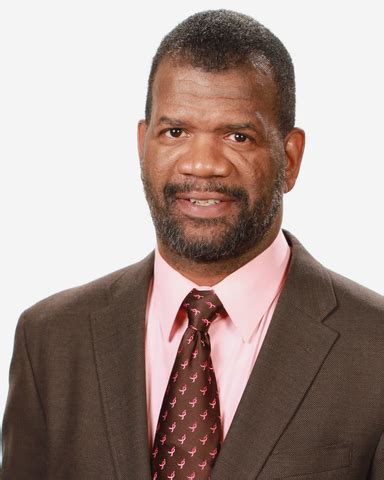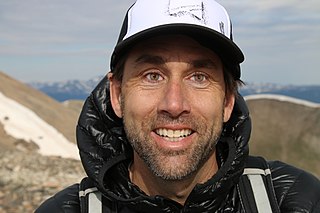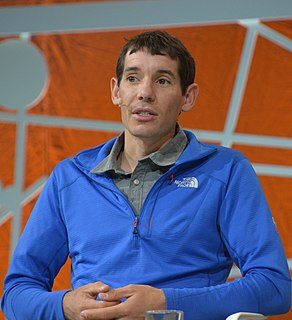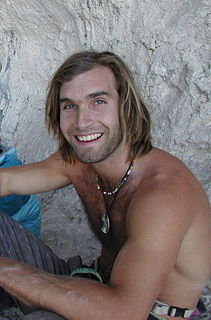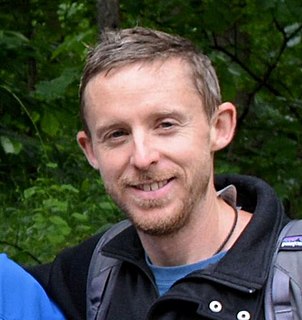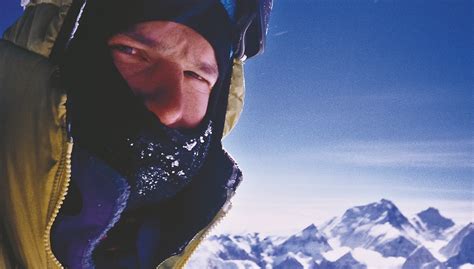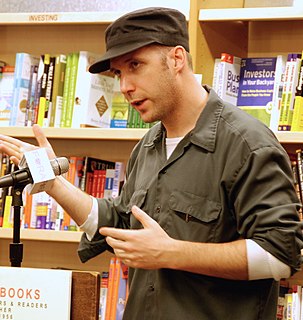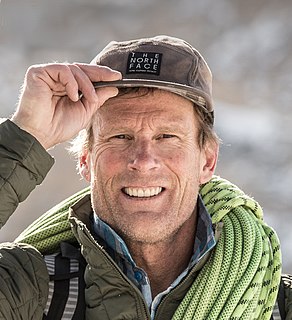A Quote by Jules Michelet
The real, in all this efforts, is that we climb just for climbing.
Related Quotes
In a sense everything that is exists to climb. All evolution is a climbing towards a higher form. Climbing for life as it reaches towards the consciousness, towards the spirit. We have always honored the high places because we sense them to be the homes of gods. In the mountains there is the promise of... something unexplainable. A higher place of awareness, a spirit that soars. So we climb... and in climbing there is more than a metaphor; there is a means of discovery.
Climbing for speed records will probably become more popular, a mania which has just begun. Climbers climb not just to see how fast and efficiently they can do it, but far worse, to see how much faster and more efficiently they are than a party which did the same climb a few days before. The climb becomes secondary, no more important than a racetrack. Man is pitted against man.
If you're climbing big routes that'll take you 16 hours, or, like, El Capitan, you have to take something like a big, robust sandwich. Climbing isn't like running or triathlons, where you have to constantly be eating blocks, gels, and pure sugar. Climbing is relatively slow, so you can pretty much eat anything and digest it as you climb.
We search out the most perfect pieces of rock. It's so amazing that these formations are so perfect for climbing on. It's almost as if they were created for climbing. You're taking these random rock formations and you're bringing to it this interaction. It transforms it from being this random rock into almost this piece of art. It's almost like a sculpture or something. Just by finding the handholds, finding that line up the rock. Every climb is different, has its own unique set of movements and body positions. Climbing and my appreciation for nature are totally intertwined.
Historically, many of the great names in alpine climbing seemed to have just gone climbing as training. In fact, the model alpinist has often portrayed himself in literature as a half-crazed nonconformist, living life on the edge every moment he's sober enough to climb. It is true that amazing feats of skill and daring have been accomplished using this rather random approach. For some climbers that "life on the edge" approach may be the only way they can accomplish these feats, but there are far better methods to prepare for the challenges of alpine climbing.
The number one metaphor I have in my mind for writing a screenplay is that...you're trying to climb a mountain blindfolded. And the funny thing about that is, you think, 'Okay, that's hard because you're climbing up a rock face, and you don't know where you're going, and you don't know where the top is, you can't see what's below you...' But actually the hardest part about climbing a mountain blindfolded is just finding the mountain.
Climbing is the lazy man's way to enlightenment. It forces you to pay attention, because if you don't, you won't succeed, which is minor - or you may get hurt, which is major. Instead of years of meditation, you have this activity that forces you to relax and monitor your breathing and tread that line between living and dying. When you climb, you always are confronted with the edge. Hey, if it was just like climbing a ladder, we all would have quit a long time ago.
Yeah, I mean, climbing's always been a massive hobby of mine up until, kind of, recent times when I've had family, but no, it's been a driving passion in my life and, uh, I've always wanted to climb the Matterhorn. It was the mountain that, sort of, inspired me to climb, as a youngster. So, it was great to be able to get to do it.

